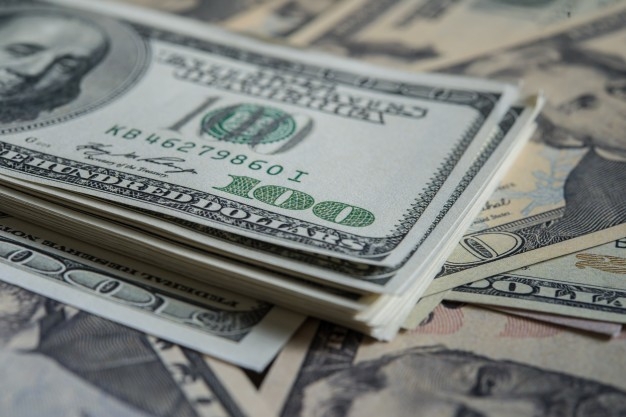VAMC bad debts platform facilitates market options
 |
| VAMC bad debts platform facilitates market options. Source: freepik.com |
In late June the company (VAMC) announced that it will register a new branch to operate as a debt trading platform.
The debt exchange platform, which is expected to be launched in this quarter, will bridge the gap between non-performing loan (NPLs) buyers and sellers to arrange the sales of debts and collateral for bad debts among relevant parties, such as banks and other organisations.
“The major task of this platform is to provide consulting services, connecting buyers and sellers in a professional fashion,” said Doan Van Thang, general director of VAMC. “It is a collection of bad debt settlements clubbed from credit institutions, businesses, and individuals who need to buy and sell debts.”
The State Bank of Vietnam also green-lit a club consisting of 23 members, mainly banks, to better address the urgent needs of debtors and borrowers.
In 2017 the National Assembly passed Resolution No.42/2017/QH14 on the pilot settlement of bad debts of credit institutions, applicable to the debt that has arisen and has been considered as soured before August 15, 2017.
Nguyen Quoc Hung, general secretary of the Vietnamese Banking Association (VBA), confirmed that Resolution 42 was only a pilot with short validity period of five years, thus the legal corridor does not apply to handling all NPLs of credit institutions in a long run. With the end of pilot upcoming next year, VAMC’s debt exchange is part of its plan to restructure and improve capacity towards 2022.
At the end of the first quarter, 26 banks revealed their NPLs increased by 5.3 per cent to more than $4 billion. Notably, large-cap banks such as BIDV, VPBank, and VietinBank posted the largest NPL holdings in the banking system with $944.5 million, $452 million, and $387 million, respectively.
In Q1, 20 of the 26 banks recorded an increase in bad debts, with some like ACB and Vietcombank reporting drastic rises. ACB saw the sharpest increase in the quarter with 61 per cent to reach $128.26 million of bad debts.
Banks have also put assets secured with NPLs up for auction to promptly speed up debt settlements.
For example, BIDV recently announced a second auction of around VND1 trillion ($45 million) debt of Khai Vy Group backed by collateral, such as the land use rights of Crystal Building, plantation land, construction, and more.
Likewise, VietinBank signalled its intention to sell many debts incurred in the high volatile period of 2010-2012. The most recent large debt, as of June 20, is from Kim Anh Co., Ltd reaching nearly VND108.6 billion ($4.8 million). The borrower’s collateral includes two land use rights and assets attached to land in Dong Da district and Tay Ho district in Hanoi with a total area of 277.5 square metres.
As of the end of last year, VAMC bought bad debts with special bonds of around nearly VND375 trillion ($16.3 billion). Moreover, the company’s debt recovery activities reached VND167 trillion ($7.26 billion). VAMC’s debt collection results accounted for 63 per cent of its total accumulated debt collection.
Can Van Luc, senior economist at BIDV Training School, said the lack of an official debt trading market and derivatives products for NPLs has posed significant challenges for lenders and debtors.
Thang of VAMC also urged ministries and relevant agencies soon complete the legal framework for the debt trading industry, including the debt securitisation and various forms of NPLs-backed products.
“Debt trading in our country is still mainly conducted and executed by contracts, while in other countries they have successfully built a transparent legal structure for securitisations and key parties involved. Debt securities also include a wide range of services from notes, stocks, and bonds to debentures, investment contracts, and many other types of instruments,” he said.
“The Ministry of Finance is studying and in seed stage of developing this mechanism, but it is too slow, in my opinion. It is very necessary to speed up the securitisation of bad debts,” Thang suggested.
Foreign investors might find it hard to access to this debt market, majorly secured by real estate assets, due to Vietnam’s rigorous legal framework. Foreigners cannot take a direct security interest or mortgage of land use rights. Thus, they have to cooperate with local banks that may not have a balance sheet strong enough to meet mandatory prudential requirements applicable to both domestic and overseas lenders. Notwithstanding, under the current law non-nationals can retain a land use right certificate for 50 years, while locals can have one indefinitely.
Under the Law on Housing 2014, foreign organisations and individual ownership of units in an apartment building in Vietnam may not exceed 30 per cent of total units in one apartment building, which is viewed as an obstacle for them to join the debt trading market.
What the stars mean:
★ Poor ★ ★ Promising ★★★ Good ★★★★ Very good ★★★★★ Exceptional
 Tag:
Tag:
Related Contents
Latest News
More News
- Banking sector targets double-digit growth (February 23, 2026 | 09:00)
- Private capital funds as cornerstone of IFC plans (February 20, 2026 | 14:38)
- Priorities for building credibility and momentum within Vietnamese IFCs (February 20, 2026 | 14:29)
- How Hong Kong can bridge critical financial centre gaps (February 20, 2026 | 14:22)
- All global experiences useful for Vietnam’s international financial hub (February 20, 2026 | 14:16)
- Raised ties reaffirm strategic trust (February 20, 2026 | 14:06)
- Sustained growth can translate into income gains (February 19, 2026 | 18:55)
- The vision to maintain a stable monetary policy (February 19, 2026 | 08:50)
- Banking sector faces data governance hurdles in AI transition (February 19, 2026 | 08:00)
- AI leading to shift in banking roles (February 18, 2026 | 19:54)






















 Mobile Version
Mobile Version